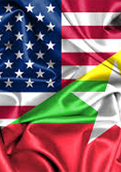US reorients policy towards Myanmar after Tillerson Visit
It may be appropriate if the US were to complement its substantial humanitarian and economic assistance by encouraging or even exerting pressure on Myanmar to implement the KAC recommendations.
- Gautam Sen
- November 27, 2017










